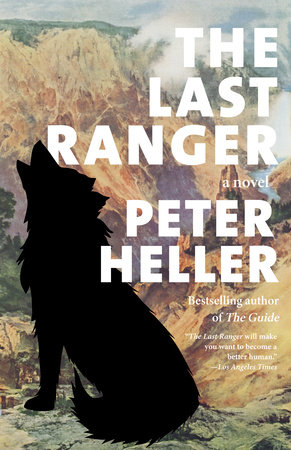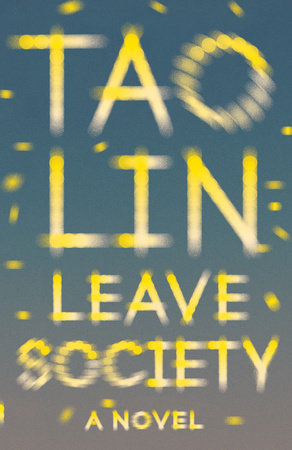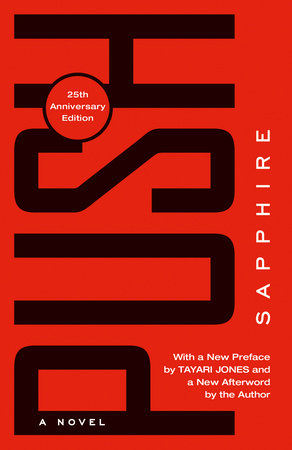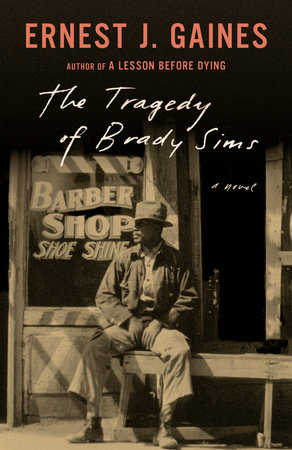Excerpt
The Last Ranger
Chapter One
It was the anger in him that scared him. The more time he spent in Yellowstone, the more he wished that people would just go away, leave the bears, the herds of elk, the foxes, the hawks alone. The wolf packs. Yesterday morning he had issued a summons to a man and his nine-year-old son for walking across the shallow Lamar River to within sixty yards of where the Junction Butte Pack were trying to feed their pups.
The river ran through open meadows here, mostly wheatgrass and sage, and on the far side they were hedged by woods that climbed steeply. The four hunting wolves had loped in from a fresh kill down-valley, and the rest of the pack had run to meet them. Nineteen, twenty, strung out in the tall grass—the image frozen like a photograph in Ren’s mind, a portrait of how the world ought to be—the wolves lean from summer, grays and blacks and buffs, one big male nearly white, sprinting flat out in what looked to be a joyous line beneath a wall of trees. They didn’t have to run. But it was daybreak on a brisk mid-September morning, and the pack was all together, and there was meat. The sun had just cleared the pass, and it burnished the grass and threw the shadows of the runners ahead of them.
If he himself could feel joy, it was now. And then, through the binocs, he saw the two figures. Man and boy already over the far bank, through the willows, stalking for a better look. Already too close.
Integrity, Honor, Service. He would run. Splash knee-deep across the river, and in forty more yards he would hail them. Yell. The pack, which had known the two were coming since well before they crossed the river—and decided to ignore them—had tumbled together in an exuberant moil, yelping, wrestling, but now, at the shout, they would freeze and stand and look. The father and son would turn, confused. Ren would wave them back, retrieve them, as he was trained to do. Back at the road he would give a stern lecture about harassing wildlife and the safety of the boy and the wolves themselves, and write the man a summons that would result in a five-hundred-dollar fine. He would tell them that the wolves would have tolerated their proximity only so long and so close, and maybe within seconds the entire pack would have raised the alarm and moved into the trees, and that every calorie they spent retreating from the boy and the man was another calorie closer to starvation. Which was true.
But it was not what Ren wanted. What did he want? In a parallel life, the wolves would stand all together and turn and decide enough was enough. They would fan out in an arc, eyes steady and fast on their prey, and they would flank the father and son. And one of the fast females would feint a charge, and one of the big males would dart in behind and hamstring the man, and in minutes it would be over.
Wolves had never once attacked a human in Yellowstone. In Ren’s fantasy they would spare the boy. And when Ren had shaken himself from his reverie, he thought,
Jesus, what the hell has gotten into you? Do you think you’re the last ranger that puts the animals first? But that was the anger that frightened him. In his world lately, the life of a wolf, or a hawk, might be worth more than the life of a man.
Now, with the rain gusting against the roof of the cabin, he left the door to the porch wide open for a minute and filled the kettle in the steel sink and set it on the woodstove. He’d make tea. It was late, and he was amped from the night, more from what he’d seen in the buffalo’s eye than anything else. The animal was one of those huge, scarred old bulls who had lived a life of hardship and battle and now browsed alone, and dozed in the open, sometimes skylined on a grassy spur because he feared nothing now, not wolf packs nor storm. As Ren squatted over him in the rain, he had thought he saw, beneath the confusion and fear and raw pain, a sadness: after wolves, lions, drought, snowdrifts so deep the calves drowned in them . . . had it come to this? Or maybe the depthless black eye was only a mirror for Ren’s own bafflement and grief. In any event, he needed to open the cabin door wide and let the gusts smatter the screen door and fill the room with the cold of the autumn night. On the wind he could smell the faint sweetness of aspen turning and the unmistakable scent of snow, which must now be falling on the highest ridges. It was already past midnight. He wouldn’t sleep much.
He picked a smaller stick of firewood out of the box and knocked the chrome handle of the woodstove and let the door swing open. He stuffed in two more chunks of aspen—not the best firewood, it burned hot and wouldn’t bank all night, but there was plenty of it standing dead on the pass above Cooke City, and it was easy to cut a truckload. Part of the deal for him to stay at the research station: he’d supply his own firewood. He didn’t mind. He liked it. To get out of the park and onto a highway whose speed limit wasn’t forty. Where nobody was gawking. Where the pickups going too fast were the parents fetching their kids from the bus stop down in Ranford, and where sometimes a passing teenager flashed him the finger, because Ren’s truck had a green stripe and “U.S. Park Ranger” on the side, and all things park were bogus because they wouldn’t let the boy or his father kill the wolves in there, or the trophy elk that wandered the clearings so close to the road you could slay them with a shovel. He didn’t mind. Life in Cooke City was hardscrabble. In the summer the tourists came in tidal floods, a local could work sixteen hours a day for thirty days straight, and in winter moms took their schoolchildren over the pass on snowmobiles in the dark. And so, having this enforced Eden right next door, enjoyed by mostly privileged folks from away who were
on vacation, and where idyllic herds roamed and the lion practically lay down with the lamb—it galled. More than a few people along the park’s borders would abolish Yellowstone in a heartbeat. Ren got it. He didn’t mind. He usually met the flipped birds with a smile. He liked to leave the park, and then he loved to drive back in. There was wildness going in either direction.
But once in a while a resident in Cooke City did kill. There was today’s wolf. And now Mink Man was back. In the same wooded canyon, and in another creek one drainage over, never far from the park boundary, seven leg traps had been discovered in the last few weeks. Each trap had had a red ribbon tied to the chain ring. It had baffled Ren and the other rangers. A taunt or a brag, who knew. A fisherman had reported the first, and after that Ren had made a point of fishing that stretch and scouting, and he had found the rest. In the silt of the creek at water’s edge he had photographed a single boot print. Ren laid his Pilot pen next to the track before he took the picture. The foot was large—size fourteen, it turned out. How many trappers out of the handful in Cooke City had feet that big?
There had been other disturbing incursions. Outside of Mammoth, along Lava Creek, an enforcement ranger named Jim Lefevre had his tires slashed. Farther upstream, in plain view of the road, a nesting osprey had been blasted with a shotgun. A growing sense of organized harassment had begun to percolate slowly up the park’s chain of command; but the chain of com- mand did not at all like making a decision, especially one that carried a smidgen of political risk. And so the rangers’ reports were tucked into a Review in Six Months file and ignored.
And then the note. A week ago, he had been fishing up Slough Creek, and he’d come back to his truck, and tucked under the wiper blade was a cash receipt from the general store in Cooke City. Someone that morning had bought ten dry flies for twenty-five dollars cash. It was folded in half, and Ren opened it, and on the back was scrawled in scratchy ballpoint a stick figure hanging from the inverted L of a gallows and in capital letters below it, each letter underlined, his name:
H-O-P-P-E-R.? Question mark after the period. A barb like an uncrimped hook. Ren on reflex took a step closer to the side of his truck, the protection of it. He looked down the line of seven pickups and SUVs still parked at the edge of the gravel road. Backpackers and fishermen, mostly. He glanced at the trail climbing steeply into the aspen. No one.
Tonight Ren wouldn’t sleep much. He knew. The kettle would boil and whistle and he’d steep a chamomile and sit in the chair where the woman had listened to her husband lie. He’d let the buffeting wind from the open door chill his back, and then he’d get up and step onto the porch and let it truly freeze him. Until chest and hands were numb and he began to shake. And then he’d sing—“River in the Rain” or “Guantanamera”—just so he could listen to the hard quaver and chatter, and finally something clean and good would rise in his torso and warm it. “Stop whining,” he would think. “This is fun.”
Not whining. “Well, you’re something. This is the best place and one of the jobs you always wanted.” He’d end the song with a loud “Brrrrrr” and body shake, then step inside and close the door and stretch out on the bunk in back and drift.
It was true. It was one of the jobs he’d always wanted. But then he’d been one of those kids who had wished he had a dozen lives to try out. Game warden had been one aspiration—among more conventional careers like cowboy, salvage diver, and founder of a new country—but when he landed the job with the NPS and was assigned to Yellowstone his fifth year, he had felt like he’d come home.













